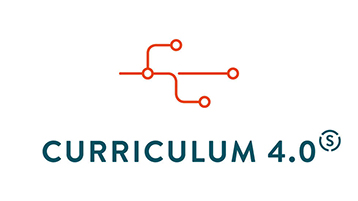The digital death drive in/of education and parenting
Gastvortrag, 11. Mai 2021
Probing the genealogy from (neuro)psychologisation to digitalisation. Englischsprachiger Vortrag von Dr. Jan De Vos (Cardiff University, Wales).
Auf einen Blick
The digital death drive in/of education and parenting – Probing the genealogy from (neuro)psychologisation to digitalisation
GastvortragWann?
- 11. Mai 2021
- 17.30 Uhr bis 18.30 Uhr
-
in meinen Kalender übertragen
BEGIN:VCALENDAR VERSION:2.0 PRODID:-//hacksw/handcal//NONSGML v1.0//EN CALSCALE:GREGORIAN BEGIN:VTIMEZONE TZID:EUROPE/BERLIN BEGIN:DAYLIGHT TZOFFSETFROM:+0100 TZOFFSETTO:+0200 TZNAME:CEST DTSTART:19700329T020000 RRULE:FREQ=YEARLY;BYMONTH=3;BYDAY=-1SU END:DAYLIGHT BEGIN:STANDARD TZOFFSETFROM:+0200 TZOFFSETTO:+0100 TZNAME:CET DTSTART:19701025T030000 RRULE:FREQ=YEARLY;BYMONTH=10;BYDAY=-1SU END:STANDARD END:VTIMEZONE BEGIN:VEVENT LOCATION:Zoom-Meeting Meeting-ID: 835 8088 9659 Kenncode: 319544 Zoom-Meeting beitreten: DESCRIPTION: SUMMARY:The digital death drive in/of education and parenting – Probing the genealogy from (neuro)psychologisation to digitalisation DTSTART;TZID=EUROPE/BERLIN:20210511T173000 DTEND;TZID=EUROPE/BERLIN:20210511T183000 DTSTAMP:20250419T170313 UID:6803bb313c417 END:VEVENT END:VCALENDAR
Wo?
Zoom-Meeting
Meeting-ID: 835 8088 9659
Kenncode: 319544
Zoom-Meeting beitreten:
https://th-koeln.zoom.us/j/83580889659
Veranstaltungsreihe
Kolloquium-4.0
ReferentIn
Dr. Jan De Vos lehrt Critical Social Psychology an der School of Social Sciences at Cardiff University (Wales). https://www.cardiff.ac.uk/people/view/2402421-devos-jan
Anmeldung
Nicht erforderlich
Weitere Informationen
Bei dem Kolloquium 4.0 werden die Vorträge aufgezeichnet, aber nicht die anschließenden Diskussionen.
The digital death drive in/of education and parenting – Probing the genealogy from (neuro)psychologisation to digitalisation
Is digitalisation the end of education and parenting, and for that matter, of social work? Digital learning platforms track and trace pupils and tweak their learning process algorithmically. In the meantime, at the homes, smart Parenting devices put on lullabies when the baby cries. While, at night, digital camera surveillance in our institutions for youngsters allows for less social workers on the floor.
Instead of using (neuro)psychology to understand the effects of this digitalisation of (inter)subjectivity, we need to take a step back and inquire into how much (neuro)psychological theories and models are already put into these educational and parenting digital technologies (and for that matter, in digital technologies and things such as social media as such). For, is it not (neuro)psychology that informs the design of avatars and virtual environments, up and to the algorithms themselves?

